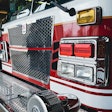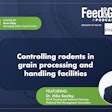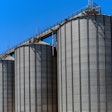
The proverbial glass of milk has spilled. Do you cry about it? Mop it up and pretend it didn’t happen? Or admit that the milk spilled, the glass broke and the cleanup process has begun?
In today’s age of undercover videos, technological dependence and agriculture antagonists waiting at the fencerows, on-site disasters are bound to happen and make their way into the public eye. Vital to handling all accidents is having a predetermined disaster plan in place.
Assess the situation
When an on-site accident or disaster occurs, it is essential to quickly and efficiently determine if the issue is just a glass of spilled milk, something that can ethically and quietly be cleaned up and kept “in house,” or if it is truly a crisis that will garner media attention and affect stakeholders.
If it is a true disaster, i.e., grain dust explosions, grain engulfment, falls and injury or death by equipment, the first step is to immediately seek legal counsel before issuing official statements or speaking with members of the press.
Mark D. Aljets, in a previous Feed & Grain article, also advised contacting insurance companies directly following a crisis.
“When an explosion occurs, your first priority is the well-being of anyone injured in the accident. Then, while this may seem obvious, it is imperative that your insurance company be notified immediately of the event.”
He continued, noting that insurance companies will be able to provide individuals and entities who can help put an action plan into place, reminding “this is why you pay your insurance premiums.”
The first minutes after disaster strikes are formative to how a company handles a situation and rebuilds after it is resolved; contacting legal counsel and insurance companies are the first steps on the path to a successful recovery.
Working with the media
The media likes reporting on a good crisis, and when disaster strikes it is very likely that reporters will descend upon the site while fires are still burning, looking for answers, specifics and any other information they can find, which is why it is vital to have a media strategy in place before a crisis.
A crisis media strategy should include the following:
- A crisis communications team: This team is comprised of members who are familiar with the company, industry and media. It is important to note that not all the members of this team should be to spokespersons during a time of crisis.
- Spokespersons: These are selected individuals who have gone through some form of training to speak with the media. They should be the only representatives communicating with reporters, issuing statements or speaking on behalf of the company. Additionally, they are familiar with the company, its history and any other information that may be investigated during the crisis.
- Talking points: This list covers all topics regarding the company, its history, safety protocols or other areas that might be of interest to the media. Ideally, these talking points were created before the disaster from a neutral perspective and have gone through the company’s approval process.
- Initial statement: The first statement that is made public regarding a disaster should provide as many facts as permitted by legal counsel, allowing the company to control the message before industry antagonists attack and spin the situation. Additionally, if facts are not being released at the time, the statement should promise to keep all parties apprised of any developments.
- Media monitoring systems: These systems should be in place to understand what is being reported about the situation, allowing the communications team to draft statements and additional talkingpoints tackling issues head-on and addressing any fallacies that may make their way into the news.
Having a planned crisis communications response before it is needed allows a company to strategically utilize the media and its influence over a situation.
To tweet or not to tweet
When a crisis occurs, social media can be a company’s best ally or biggest adversary. By allowing for open communication with the public at all hours of the day and night, it’s a great tool to inform and update the public with short, concise facts about a situation. Unfortunately, not everything on social media is true, and false information can spread just as quickly as the truth.
Social media allows opinions, in addition to facts and fallacies, to spread far and wide, thus influencing public opinion on a disaster. Social Media Examiner advises a company strictly monitor all social media mentions during a time of crisis. A few additional tips from Social Media Examiner include:
- Monitor your business on social media and respond to tweets, mentions and comments on your company’s profile in a timely manner. Social media is real time, so the faster you respond, the better your customer service will look.
- If possible, suggest that customers contact you privately.
- Remember that aside from private messaging, anyone can read conversations between you and your customer.
Lyndsey Murphy, digital media specialist at the American Farm Bureau Federation, said companies need to make sure they don’t defeat themselves on social media noting that “it can be an extremely valuable tool to address an outbreak, crisis or question immediately — so make sure updates are timely and accurate.”
Additionally, Murphy said, “when appropriate, use imagery and videos to engage users and garner more interactions in the form of likes, shares and retweets, from followers.”
According to MIS Quarterly and Psych Central, “Twitter has become the leading social reporting tool to report eyewitness accounts and share information about disasters, terrorist attacks and social crises.”
When the crisis is over
When the disaster has concluded, gauging public opinion and impact becomes an important endeavor. Depending on the situation, rebuilding relations with a community, earning back stakeholders trust or simply debriefing employees might be the next step. Part of the debriefing process may even be reconciling with a family if a tragic death or injury occurred, in which case sincerity and honesty are invaluable.
No two industry disasters are exactly the same, and the end result and rebuilding process will be different for each. However, if proper and ethical crisis management protocols are followed, the chances of a company’s resiliency dramatically increase, even if it was more than a glass of spilled milk.


















